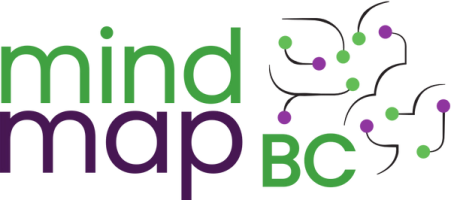Breathing Space Counselling
Summary
Relationship counselling
Individual counselling
LGBQ+ Affirming
Trans Affirming
 Wheelchair Accessible
Wheelchair Accessible2S/LGBTQ+ Affirming
Two-Spirit Affirming
Seniors
Remote services
Breathing Space Counselling was founded in 2016 by two Master Therapeutic Counsellors, Nasreen Gulamhusein & Shahaa Kakar. We offer in-person and online counselling for individuals and couples. We also offer community events and professional development training for fellow counsellors. Our offices are located in Port Moody, BC. Services available in English, Farsi and Turkish.
Our mission is to provide a safe, judgement-free zone for you to bring your struggles and work with them. Reaching a point of crisis can be scary, frustrating and overwhelming — from this state it can be difficult to figure out what to do. We are here to help you safely explore what you feel, where those feelings come from, and how you react (to yourself and others) when you feel them. With this awareness it becomes easier to make conscious choices.
You can expect a safe, inclusive and non-judgmental space. We offer 2SLGBTQIA+ positive counselling, as well as gender affirming care for trans, non-binary and gender diverse people (whether general counselling or gender specific issues).
Breathing Space is a great environment to learn new emotional skills (or strengthen existing ones) and to see your life and relationships from new perspectives. Leave each session with increased insight into your life and clarity about your next steps.
Please visit our website to learn more or book a complimentary phone session with us.
Want to learn more about this service’s work with Two-Spirit, trans, LGBQ+ people?
We invite all service providers listed on MindMapBC to answer the following questions. These questions were developed in collaboration with community members, researchers, and mental health and other service providers. They're intended to help us understand what a service provider or organization is doing to affirm and support sexual and gender diverse service users.
See below for responses for this listing.
Want to learn more about our screening questions and filters?
Do you collect and use preferred names (rather than legal names) for all communications?
—Yes
We do not ask for your legal name.
Are the forms used in your practice inclusive of various sexual orientations and gender identities (e.g., opportunities to fill in pronouns, etc.)?
—Yes
We ask for new clients to share their gender and pronouns (optional) in the intake form, so we can address you appropriately.
Are you and your colleagues aware of what specific barriers may exist for trans individuals accessing your services?
—Yes, to some extent
All our therapists are committed to ongoing learning about how to address barriers to services for trans, non-binary and gender non-conforming clients. Some of our therapists have more knowledge and experience in this area than others. You can read our therapists' bios on our website to see which ones have more experience in this area.
Do you offer Indigenous 2S/LGBTQ+ specific resources, for example Indigenous Elders or Knowledge Keepers?
—Yes, to some extent
We do have some relationships with local community organizations who offer Indigenous 2S/LGBTQ+ specific resources, which we are happy to share when appropriate.
Are you and your colleagues comfortable asking relevant questions about gender identity and sexual orientation?
—Yes
Are you and your colleagues aware of what specific barriers may exist for LGBQ individuals accessing your services?
—Yes, to some extent
Some of our therapists have lived experience in this area.
Do you and your colleagues ask clients about pronouns and use them appropriately?
—Yes
Are you and your colleagues aware of what specific barriers may exist for Two-Spirit, queer, or trans Indigenous individuals accessing your services?
—Yes, to some extent
Some of our therapists have more experience than others in this area. Please see our therapists' bios for more information.
Do you and your colleagues have experience working with people who identify as living with a disability or chronic illness? Please tell us more about your experience and any training you have received.
—Yes, to some extent
Some of our therapists have lived experience in this area.
Can you and your colleagues distinguish gender/identity dysphoria/distress from other mental health conditions that are unrelated to gender dysphoria or distress?
—Yes, to some extent
Some of our therapists have more experience than others in this area. Please see our therapists' bios for more information.
Does your practice have gender-neutral washrooms?
—Yes
Are there clear anti-discrimination policies that include gender identity, gender expression, and sexual orientation in your organization or practice?
—Yes
We work to ensure that no one is discriminated against due to race, Indigenous status, ethnicity, sex, marital status, gender identity or expression, family status, ancestry, sexual orientation, age, place of origin, body size or appearance, economic status, physical disability, religion, or mental disability. This commitment is embedded in our policies and is an ongoing area of development.
Are all individuals involved in service provision actively engaged in decolonizing their practices and/or organization? If yes, please type below what actions you and/or your organization are taking.
—Yes, to some extent
This is an ongoing area of learning and development. Our practice was founded by racialized therapists who are settlers on this land and who have their own lived experience of colonialism, racism and white supremacy. Our therapists have differing levels of knowledge in this area and we are in the early stages of developing decolonizing practices within our organization.
Are all individuals involved in service provision actively engaged in anti-racist practices, policies, and systems in their care model?
—Yes, to some extent
This is an ongoing area of learning and development. Our practice was founded by racialized therapists who are settlers on this land and who have their own lived experience of colonialism, racism and white supremacy. Our therapists have differing levels of knowledge in this area and we are in the early stages of developing decolonizing practices within our organization.
Address
Unit G - 2802 St Johns Street
Port Moody, BC
V3H 2C1
Last updated: June 16, 2023
Request changes —

